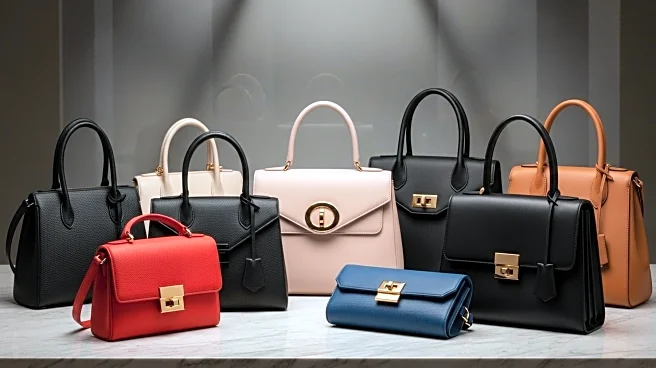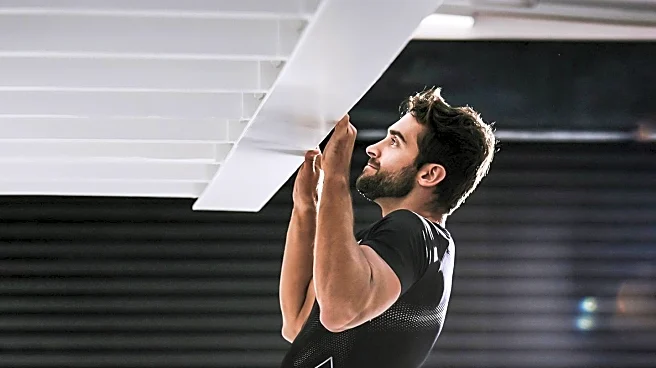What's Happening?
A surge in new handbag lines is occurring as various fashion brands, including Nili Lotan, Aureum Collective, Jamie Haller, Janessa Leone, and Guizio, introduce their own collections. This trend is driven by a perceived decline in the dominance of luxury brands, which have increased prices significantly, making their products less accessible. For instance, a Chanel classic flap bag has seen its price nearly double since 2019. This has opened opportunities for independent brands and accessible luxury labels like Coach and Ralph Lauren to capture market share. Consumers are attracted to these new offerings due to their competitive pricing and the brands' existing loyal customer bases.
Why It's Important?
The shift in consumer preference from established luxury brands to newer, independent ones signifies a potential change in the luxury goods market. As consumers become disillusioned with high prices and perceived quality issues, they are exploring alternatives that offer better value. This trend could impact the sales and strategies of major luxury brands, forcing them to reconsider pricing and quality. Additionally, it provides an opportunity for smaller brands to expand their market presence and diversify their product lines, potentially leading to increased competition and innovation in the fashion industry.
What's Next?
Brands launching new handbag lines are likely to focus on storytelling and quality to differentiate themselves. They may leverage social media and marketing campaigns to highlight the craftsmanship and value of their products. As discretionary spending tightens, brands will need to emphasize the practicality and emotional appeal of their handbags. The success of these new lines could encourage more brands to enter the handbag market, further intensifying competition and possibly leading to more collaborations or mergers within the industry.
Beyond the Headlines
The trend towards independent handbag brands reflects broader consumer shifts away from traditional luxury symbols towards more personalized and unique fashion choices. This could lead to a reevaluation of what constitutes luxury and how brands communicate their value propositions. Ethical considerations, such as sustainable production and transparent pricing, may become more prominent as consumers seek authenticity and responsibility in their purchases.









